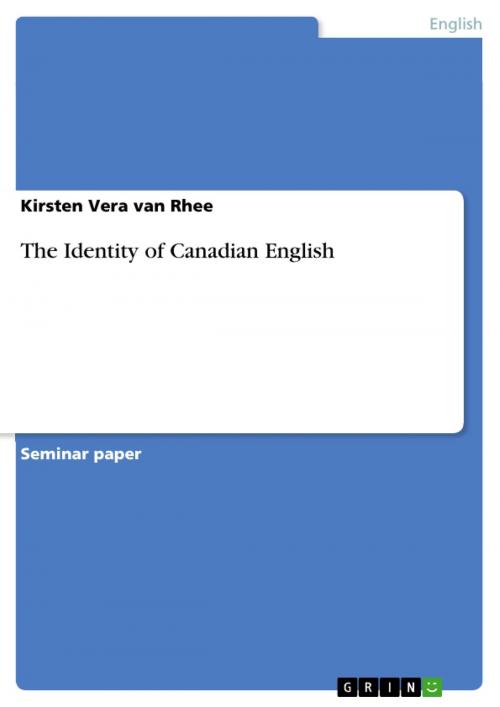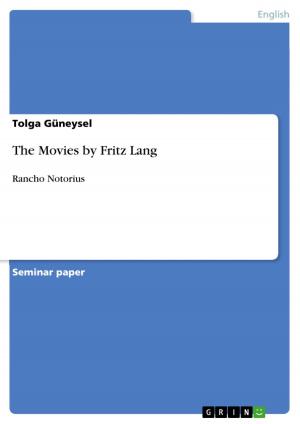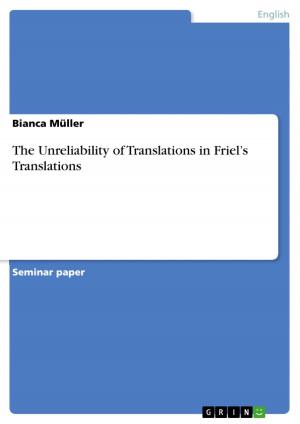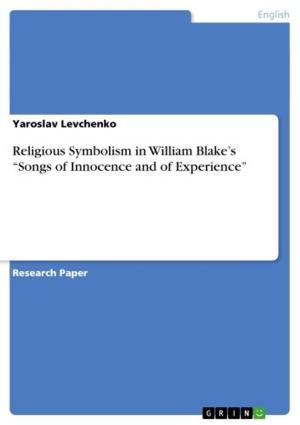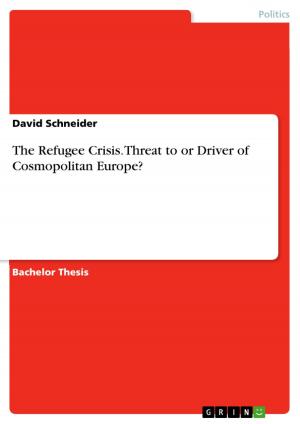| Author: | Kirsten Vera van Rhee | ISBN: | 9783640990795 |
| Publisher: | GRIN Publishing | Publication: | August 23, 2011 |
| Imprint: | GRIN Publishing | Language: | English |
| Author: | Kirsten Vera van Rhee |
| ISBN: | 9783640990795 |
| Publisher: | GRIN Publishing |
| Publication: | August 23, 2011 |
| Imprint: | GRIN Publishing |
| Language: | English |
Seminar paper from the year 1995 in the subject American Studies - Linguistics, grade: 2,0, Johannes Gutenberg University Mainz (Englische Philologie), course: Language and Identity, language: English, abstract: 1. Introduction The linguistic situation of Canadian identity has been subject of numerous debates and still there seems to be no real agreement on certain subject matters. Experts say that 'for historical reasons, Canadian English [is] the type of English associated with Southern Ontario, formerly Upper Canada, [that] has become the basis for a national norm, an imperfectly described but recognized standard across Canada.... As such, it ... has spread widely across the country, to be heard with increasing frequency among the educated, non-regionalized young in every province from the Ottowa River to the Pacific, including Newfoundland....' However, opinions differ as to what really constitutes the uniqueness of Canadian English. The problem of a separate Canadian linguistic identity becomes best apparent in the various ways in which Canadian English has been defined by linguists as quoted by Görlach: 'Canadian English is a fairly recent hybrid which resembles American English in some respects and British English in other while exhibiting much that is singularly Canadian. It is, in fact, the composite of these characteristics which gives Canadian English its unique identity.' (Avis 1973:43) 'Canadian English ... is not a composite of archaic or rustic features or a potpourri of British and American speechways but a true national language.' (Bailey 1982:152) This paper does not focus on the attempt to reconcile opposing views, but rather tries to show how far the Canadian English is both like and unlike American English as it resembles and differs from British English, yet, at the same time is distinctively Canadian, exisiting 'in its own rights and [owing] its existence to the Canadians who have made it what it is.' However, in their struggle for a distinct linguistic identity 'Canadians tread an ... apparently arbitrary path between British and American usage,' thus Orkin writes, 'with a strong leaning toward the American pattern.' Though the development of Canadian English towards a distinct linguistic identity is considered to be 'not yet complete,' it is the aim of the following to introduce the main linguistic characteristics of Canadian speech, focusing on the impossibility of separating phonological and grammatical Canadian features from the British and, especially, American influence.
Seminar paper from the year 1995 in the subject American Studies - Linguistics, grade: 2,0, Johannes Gutenberg University Mainz (Englische Philologie), course: Language and Identity, language: English, abstract: 1. Introduction The linguistic situation of Canadian identity has been subject of numerous debates and still there seems to be no real agreement on certain subject matters. Experts say that 'for historical reasons, Canadian English [is] the type of English associated with Southern Ontario, formerly Upper Canada, [that] has become the basis for a national norm, an imperfectly described but recognized standard across Canada.... As such, it ... has spread widely across the country, to be heard with increasing frequency among the educated, non-regionalized young in every province from the Ottowa River to the Pacific, including Newfoundland....' However, opinions differ as to what really constitutes the uniqueness of Canadian English. The problem of a separate Canadian linguistic identity becomes best apparent in the various ways in which Canadian English has been defined by linguists as quoted by Görlach: 'Canadian English is a fairly recent hybrid which resembles American English in some respects and British English in other while exhibiting much that is singularly Canadian. It is, in fact, the composite of these characteristics which gives Canadian English its unique identity.' (Avis 1973:43) 'Canadian English ... is not a composite of archaic or rustic features or a potpourri of British and American speechways but a true national language.' (Bailey 1982:152) This paper does not focus on the attempt to reconcile opposing views, but rather tries to show how far the Canadian English is both like and unlike American English as it resembles and differs from British English, yet, at the same time is distinctively Canadian, exisiting 'in its own rights and [owing] its existence to the Canadians who have made it what it is.' However, in their struggle for a distinct linguistic identity 'Canadians tread an ... apparently arbitrary path between British and American usage,' thus Orkin writes, 'with a strong leaning toward the American pattern.' Though the development of Canadian English towards a distinct linguistic identity is considered to be 'not yet complete,' it is the aim of the following to introduce the main linguistic characteristics of Canadian speech, focusing on the impossibility of separating phonological and grammatical Canadian features from the British and, especially, American influence.
